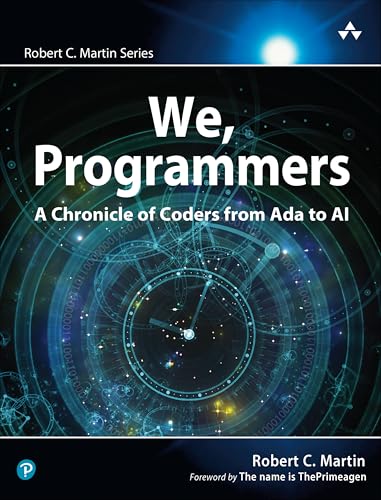What do you think?
Rate this book


480 pages, Paperback
Published November 30, 2024
"But pop culture holds a disdain for history. Pop culture is all about identity and feeling like you’re participating. It has nothing to do with cooperation, the past or the future—it’s living in the present. I think the same is true of most people who write code for money. They have no idea where [their culture came from]"If, on the other hand, you're one of the rare and exalted people who do care, Martin's book gives you a good overview in one place.